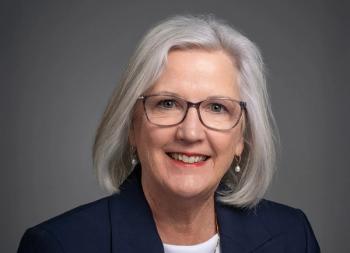
Reading Clinician Visit Notes Improves Medication Adherence
Poor medication adherence costs the healthcare system about $300 billion per year.
Photo/Thumb have been modified. Courtesy of
Patients who read their clinician visit notes reported medication-related benefits, including feeling more comfortable and likely to take the medication as prescribed, according to a
This was especially true of those whose primary language isn’t English or had lower levels of education. Of the patients with a language other than English, 75% reported that reading the notes helped them understand the reason for the prescription, compared to 64% of primary English speakers. For those with a high school education or less, 74% reported that the notes helped answer questions about their medications, compared to 53% of college graduates.
Among the findings that represented approximately 20,000 adult patients, 64% reported an increased understanding of why they were prescribed a medication after reading their clinician visit notes. What’s more, 62% felt more in control of their medications, and 57% found answers to questions about medications. A majority of patients (61%) felt more comfortable with their medications.
“Sharing clinical notes with patients is a relatively low-cost, low-touch intervention,”
DesRoches said that poor adherence to medications costs the healthcare system about $300 billion per year.
“Anything that we can do to improve adherence to medications has significant value,” she said.
In 2017, patients at Beth Israel Deaconess Medical Center in Boston, University of Washington Medicine in Seattle and Geisinger, a health system in rural Pennsylvania, took an online survey to report the original pilot of OpenNotes, which gave them online access to clinical notes.
To be eligible, patients needed to be at least 18 years old and had logged into the portal at least once in the previous 12 months and had an ambulatory visit note available. The researchers offered 50 raffle prizes at each site as an incentive for participation.
Nearly 137,000 patients received invitations to take the survey, and nearly 30,000 responded. Of the 19,411 who read notes and reported taking or being prescribed medications in the 12 months before the survey, 14% from practices associated with Geisinger and Beth Israel Deaconess Medical Center reported that the notes made them more likely to take their medications as prescribed.
The researchers altered the wording and response categories of the survey issued at practices associated with the University of Washington.
From that survey, 33% of patients rated notes as extremely important in assisting with their medication regimens.
Most patients from the three sites reported that reading clinical notes helped them understand why the physician prescribed the medication. The documents answered their questions and made them feel more comfortable with and in control of their medications.
Close to 80% of respondents reported looking at their medication list online at least once, while 18% said the list was not accurate.
Written records of visits give critical information to patients, experts noted. Improved adherence could reflect increased trust in physicians.
“Our challenge now is to make the best and most of shared healthcare information as a tool for clinical management and health improvement,” David Blumenthal, M.D., and Melinda K. Abrams, M.S., of the Commonwealth Fund in New York, wrote in
Blumenthal and Abrams suggest that healthcare providers work with manufacturers to develop consumer-facing applications to provide more transparency for patients to make sense of their health information. Physicians should also be equipped to manage information sharing with their patients, they wrote.
Get the best insights in digital health
Related































